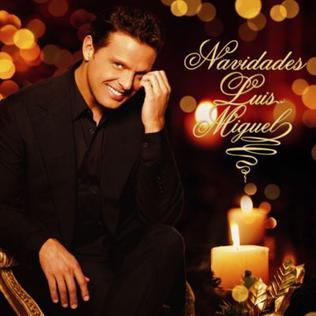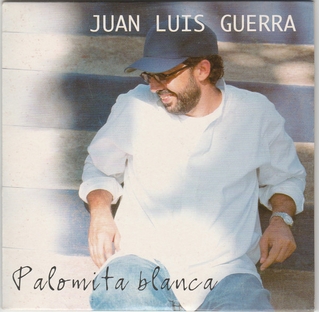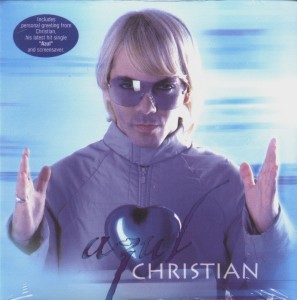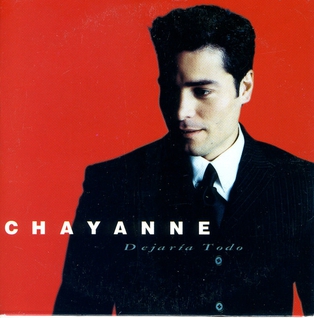
Mexican recording artist Luis Miguel has released 21 studio albums, 30 compilation albums, three extended plays (EP) two live albums, two soundtrack albums and five box set. Luis Miguel has sold over 60 million records, making him one of the best-selling Latin music artists of all time. Luis Miguel is also the artist with the second-most number ones on the Billboard Top Latin Albums chart with nine albums. At the age of 11, he released his debut studio album, Un Sol (1982), which was certified platinum and gold in Mexico. The artist would release four more studio albums under the record label EMI: Directo al Corazón (1982), Decídete (1983), También es Rock (1984), and Palabra de Honor (1984). A Portuguese-language version of Decídete and Palabra de Honor were released in Brazil as Decide Amor and Meu Sonho Perdido, respectively. Luis Miguel made his acting debut in the film as the lead role on Ya nunca más (1984) and recorded its soundtrack. In 1985, he participated in the Sanremo Music Festival 1985 with the song "Noi ragazzi di oggi"; it placed second in the Big Artist category and was later included on the Italian-language edition of Palabra de Honor. In the same year, Luis Miguel recorded the soundtrack for the film Fiebre de amor, which he co-starred with fellow Mexican singer Lucero.

Romances is the twelfth studio album by Mexican singer Luis Miguel, released on 12 August 1997, by WEA Latina. It is the third album of the Romance series, in which Luis Miguel covers Latin songs from 1940 to 1978. Aside from Luis Miguel, the production also involved arranger Bebu Silvetti, and Armando Manzanero, who directed all of Luis Miguel's Romance albums. Romances consists of twelve cover versions and two new compositions by Manzanero and Silvetti. Recording took place in early 1997 at the Ocean Way recording studio in Los Angeles, California.

Romance is the eighth studio album by Mexican singer Luis Miguel. It was released by WEA Latina on 19 November 1991. Although the production was originally intended as another collaboration with Juan Carlos Calderón, that plan was scrapped when Calderón was unable to compose songs for the album. Facing a new-material deadline in his recording contract, at his manager's suggestion Miguel chose bolero music for his next project. Mexican singer-songwriter Armando Manzanero was hired by WEA Latina to co-produce the album with Miguel. Recording began in August 1991 at Ocean Way Recording in Hollywood, California, with Bebu Silvetti the arranger.

"Sol, Arena y Mar" is a song written by Arturo Perez, Francisco Loyo, and Salo Loyo and co-written, produced, and performed by Mexican singer Luis Miguel. It is a horn-driven uptempo pop song with jazz influence which deals with a strained relationship. The song's lyrics were rumored to have been influenced by Miguel's previous relationship with Daisy Fuentes. It was released as the lead single from the album Amarte Es un Placer on 19 July 1999.

Nada Es Igual is the eleventh studio album by Mexican recording artist Luis Miguel. It was released by WEA Latina on 20 August 1996. The album has a musical style similar to his previous pop album Aries (1993) on which Miguel performs power ballads and R&B tunes. Recording took place at the Record Plant Studios in February 1996, with production handled by Miguel and his longtime associate Kiko Cibrian. Its songwriting was assisted by Cibrian, Rudy Pérez, and Alejandro Lerner. The album was promoted by three singles: "Dame", "Cómo Es Posible Que a Mi Lado", and "Que Tú Te Vas"; the former became the most successful single reaching number two and number one on the Billboard Hot Latin Songs and Latin Pop Songs charts, respectively. To further promote the recording, Miguel launched the Tour America 1996 where he performed in several South American countries.

Navidades (transl. Christmas) is the 17th studio album by Mexican singer Luis Miguel, which Warner Music Latina released on 14 November 2006. It is Miguel's first Christmas album, and features Spanish-language adaptations of English-language songs and carols consisting of big band numbers and string-laden ballads. Édgar Cortázar and Juan Carlos Calderón adapted the songs and Miguel produced the album. To promote Navidades, "Mi Humilde Oración" and "Santa Claus Llegó a la Ciudad" were simultaneously released as lead singles, and Luis Miguel performed two tracks from the album on the set list on the third leg of his México En La Piel Tour (2005–07) in November and December 2006.

"Nunca Te Olvidaré" is a song by Spanish singer Enrique Iglesias for his third studio album Cosas del Amor (1998). It was written by Iglesias with Rafael Pérez-Botija handling its production. A power ballad, it is a confessional song of staying in love through time and other lovers. Upon its release, it was met with generally positive reactions from music critics, although one reviewer was less impressed with it along with the other ballads from the album. The song was featured as the main theme for the 1999 Mexican telenovela of the same name.

Cómplices (transl. Accomplices) is the 18th studio album by Mexican singer Luis Miguel, released on 2 May 2008 by Warner Music Latina. The record is a collaboration with Spanish musician Manuel Alejandro, who wrote and arranged the songs, and co-produced the album with Luis Miguel. Musically, it is a pop album of mostly ballads and a few uptempo tracks with lyrics emphasizing romance. Two singles were released to promote the album: "Si Tú Te Atreves" and "Te Desean". To further promote the record, Luis Miguel embarked on the year-long Cómplices Tour from September 2008 to September 2009. He performed in North America and a few countries in South America.

Cómplices Tour was a concert tour by the Mexican singer Luis Miguel to promote his album Cómplices. The tour consisted of 91 concerts and ran through, US, Canada, Dominican Republic, Puerto Rico, Chile, Argentina, Uruguay and Mexico between 2008 and 2009, grossing $36.1 million from 73 shows reported with 450,000 spectators.

No Culpes a la Noche – The Club Remixes is the first remix album by Mexican singer Luis Miguel. It was released on 22 September 2009, by Warner Music Latina. The album features 10 previously recorded tracks by the artist remixed by several disc jockeys (DJs) including Hex Hector, Danny Saber, and Dario Gomez & Vlad Diaz. To promote the album, the remix of "Será Que No Me Amas" was released as its lead promotional single.

Luis Miguel is the 19th studio album by Mexican singer Luis Miguel, released on 14 September 2010 by Warner Music Latina. It is a pop album featuring uptempo tracks with several ballads with lyrics emphasizing romance. "Labios de Miel" was released as the album's lead single while "Mujer de Fuego" was launched to promote the special edition of the record. To further promote the record, Luis Miguel embarked on self-titled tour from September 2010 to May 2012. He performed in the Americas and Spain.

"Palomita Blanca" is a song by Dominican Republic singer-songwriter Juan Luis Guerra and his band 4-40 from his eighth studio album, Ni Es lo Mismo Ni Es Igual (1998). As with the rest of the album, the song was written and produced by Guerra. The song was released as the second single from the album in March 1999 by Karen Records. It is a bachata acoustic ballad about a man who is immensely in love with a woman and refuses to let her go.

"El Niágara en Bicicleta" is a song by Dominican Republic singer-songwriter Juan Luis Guerra and his band 4-40 from his eighth studio album, Ni Es lo Mismo Ni Es Igual (1998). The song was written and produced by Guerra. It was released as the third single from the album in 1999 by Karen Records. A merengue rap song, it sees the protagonist finding himself in a hospital that is in poor condition, based on Guerra's experience in one. The song received positive reactions from three music critics, who praised who praise its music and social conscious lyrics.

"Amiga Mía" is a song by Spanish singer Alejandro Sanz from his fifth studio album, Más (1997). WEA Latina released it as the album's fourth single in the same year. The song was written by Sanz and produced by Miguel Angel Arenas and Emanuele Ruffinengo. The rock ballad carries a message of unrequited love and was inspired by a close friend of Sanz. The song received positive reactions from music critics who regarded it as one of his best songs. A music video for "Amiga Mía" features the artist performing on top of a building while the townspeople watch and his love interest leaves with her fiancé.

"Azul" (transl. "Blue") is a song by the Mexican singer Cristian Castro from his seventh studio album of the same name (2001). The song was co-written by brothers Kike and Gustavo Santander and produced by Kike, Andrés Munera, Fernando "Toby" Tobón. It is a pop rock power ballad in which the singer likens love to the color blue. The track was released on as the lead single from the album by BMG US Latin on 3 May 2001. A music video for "Azul" was directed by Pedro Torres and features Castro in a beach, house, and a nightclub with friends and premiered on 6 June 2001.
"Todo y Nada" is a song written and performed by Mexican singer Vicente Garrido Calderón released in 1957 and originally recorded by Los Tres Ases and Lucho Gatica. It was covered by Mexican singer Luis Miguel on his album Segundo Romance (1994) where it was released as the third single from the album in 1995 and reached number three on the Billboard Hot Latin Songs and number one on the Latin Pop Airplay charts, becoming his third number-one song on the latter chart. "Todo y Nada" became Miguel's third consecutive number-one song from Segundo Romance in Mexico; and became a top-five hit in Chile, Panama and Puerto Rico.

"Dejaría Todo" is a song by Puerto Rican singer Chayanne from his ninth studio album, Atado a Tu Amor (1998). The song was written and produced by Estéfano and released as the lead single from the album in September 1998 by Sony Discos.The rock ballad details everything the singer is capable of doing for his lover. The song received generally positive reactions from music critics and is listed among Chayanne's best songs. A music video for the song was filmed and features a dark scenery. Commercially, it topped the Billboard Hot Latin Songs and Latin Pop Airplay charts in the United States. The track was nominated for Pop Song of the Year at the 11th Lo Nuestro Awards and Song of the Year at the inaugural Ritmo Latino Music Awards in 1999 and was acknowledged as an award-winning song at the 2000 Broadcast Music, Inc. (BMI) Latin Awards.















